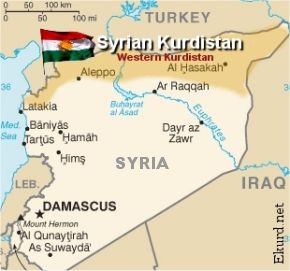TIME: The U.S. State Department said they oppose the Turkish pipeline because they worry that it could threaten the integrity of Iraq. Do you think building this pipeline could threaten the integrity of Iraq?
Barzani: That’s a joke [chuckles]. No, really, that’s a joke. First of all everybody knows and realizes Turkish policy. Turkish policy is against any Kurdish independence, I mean it’s obvious. So this is the fate that we have been given. Turkey has always had that power, that authority to militarily stop us. I will gladly say the opposite. What threatens Iraq’s integrity is the performance of Prime Minister Maliki in Baghdad. Maliki wants to utilize that campaign against us. We have a door of hope, which is Turkey. And if that door, that hope is closed, it will be impossible for us to surrender to Baghdad. We will do something that will put in danger the interests of all those concerned.
(...)
TIME: Did you imagine five years ago that you would be receiving heads of state here? That Kurdistan would have come so far as an independent region?
Barzani: Five years ago, it was so difficult, really. Five years or more, it was difficult to expect that, really. Because I remember, Turkey especially, they had 200,000 troops on the border. They threatened us, we will enter here. And instead of that right now we have almost $8 billion in trade with Turkey. Only with the KRG. And the major Turkish companies in construction, in other areas, they are active here. And for the opening ceremony of the new Erbil airport Prime Minister Erdogan, he came here. So, it’s a big change. It’s a really big change in terms of the relationship with Turkey.
TIME.com
Yes, 5 years ago we showed them who the boss is.
Now we're coming to take the cheap Oil.
Iraqi Kurdish leaders accepted their fate, PKK will be slaughtered until there's noone left of them.
Last edited:
 Why don't you pull that small turkish penis of yours, out of that goats ass, and then come and talk about destroying Kurdistan (In your dreams)
Why don't you pull that small turkish penis of yours, out of that goats ass, and then come and talk about destroying Kurdistan (In your dreams)


